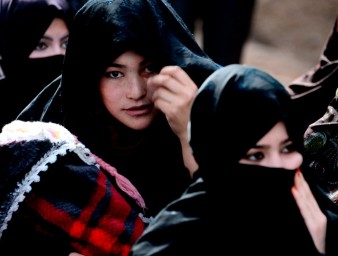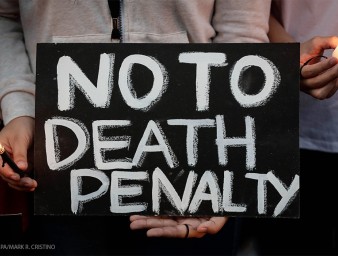Death penalty victims’ families deserve respect, panellists say
02 October 2015

As momentum continues to build towards abolishing the death penalty, Secretary-General Ban Ki-moon stressed the need to ensure that the rights of victims and their families are respected as part of efforts to ensure a life of dignity for all.
“The rights of victims and their families must absolutely be respected,” Mr. Ban said in his message to the event, Moving Away from the Death Penalty: The Voices of Victims' Families, delivered by United Nations High Commissioner for Human Rights Zeid Ra’ad Al Hussein.
The event, held on the margins of the high-level segment of the General Assembly, was organized by the UN Human Rights Office. The Office noted that a growing body of evidence suggests that, from the perspective of murder victims’ families, the death penalty is harmful and interferes with a difficult healing process.
Punishment, as represented by the death penalty, is not justice, Zeid recently said. He has called on working toward solutions to capital offenses that require not just retribution, but recognition of wrongdoing by the guilty party. Solutions that can provide genuine remorse and reckoning, he said.
“We must continue to put an end to the application of the death penalty, which is the very example of human vengeance at its worst. It may bring a primordial sense of relief to the victims; but they are still shortchanged in the absence of genuine remorse by the wrongdoer,” Zeid said.
Seven decades ago, only 14 countries had abolished the death penalty. Today, 82 per cent have either introduced moratoria by law or in practice or have abolished it. Over the past 12 months alone, Fiji, Madagascar, Suriname, and the state of Nebraska in the United States have abolished the practice of putting people to death.
But despite this overarching worldwide trend towards abolition, Mr. Ban said, a small number of countries have increased or resumed executions in recent months.
“Frequently, these policies are justified by authorities invoking the rights of crime victims’ families. In reality, many murder victims’ families believe that responding to one killing with another does not honour the victim.”
At the event, several foreign ministers and other representatives of UN member states shared their respective countries' experiences in efforts to abolish the death penalty. Three anti-death penalty activists also took part in the discussion. Sister Helen Prejean and Robert Curley -- both from the United States -- and Mireya Garcia Ramirez -- from Chile -- spoke movingly of their personal experiences.
Sister Prejean, whose book Dead Man Walking was made into a movie, urged the audience to listen to the voices of victims' families, adding that many have often expressed their opposition to capital punishment. Robert Curley conveyed a similar view, drawing from a personal tragedy (the torture and killing of his 10-year old son) that initially led him to become an active supporter of the death penalty. He changed this view he said after he realized the injustices of capital punishment.
The UN Declaration of Basic Principles of Justice for Victims of Crime and Abuse of Power clearly states these and other rights of victims of crime, and it outlines measures to secure them.
Critical in this regard, noted Mr. Ban, are the right to see effective investigations and proper retribution for crimes and the right to demand redress for the harm suffered, through judicial and administrative mechanisms that are expeditious, responsive, fair, and accessible.
2 October 2015



